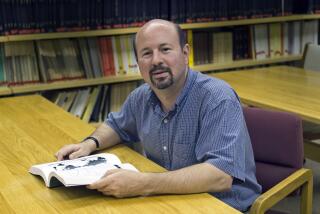Former Critic of DNA Evidence Says Technique Is Now Reliable
A scientist who has been a prominent critic of the use of DNA evidence in court now says the field has progressed enough that such evidence is acceptable.
“The DNA fingerprinting wars are over,” Eric Lander of the Whitehead Institute for Biomedical Research in Cambridge, Mass., wrote in today’s issue of the journal Nature with a co-author from the FBI.
“There is no scientific reason to doubt the accuracy of forensic DNA typing results” as long as the testing meets current standards, they said.
DNA evidence, which compares a defendant’s genetic makeup with that found in samples of blood or other material from a crime scene, has been in the news because of the O.J. Simpson trial.
The debate over DNA evidence has centered on technical problems and how to calculate the odds that an apparent match between a defendant’s DNA and a crime-scene sample could be due to chance.
In 1989, Lander wrote in Nature that DNA evidence could be unreliable because of a lack of procedural standards. But now there are appropriate guidelines for laboratories, hundreds of scientific papers and a National Research Council study of DNA evidence, Lander and Bruce Budowle wrote.
They said they could “identify no remaining problem that should prevent the full use of DNA evidence in any court.”






